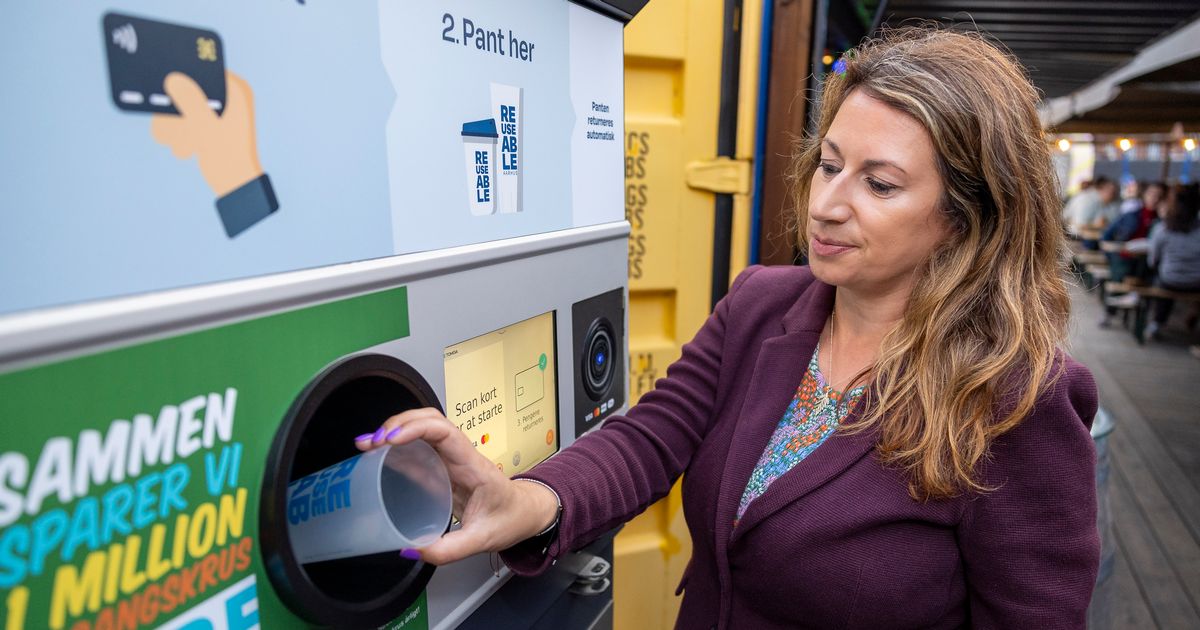Lifestyle
Ireland Considers Danish Model for Coffee Cup Recycling Solution

The Irish government is evaluating the potential implementation of a deposit return scheme aimed at addressing the staggering issue of approximately 200 million coffee cups discarded annually. This initiative draws inspiration from a successful model in Denmark, where similar practices have significantly improved recycling rates and reduced waste.
The Danish city of Aarhus has pioneered a scheme that incentivizes consumers to return used coffee cups for a small deposit. This approach not only encourages recycling but also fosters a culture of sustainability among residents. In Ireland, where coffee consumption has surged, the need for effective waste management solutions has become increasingly urgent.
According to recent studies, the environmental impact of single-use coffee cups is profound, contributing significantly to landfill waste. The Irish coffee industry, along with local municipalities, is now exploring how a deposit return scheme could mitigate this problem. Such a system would require coffee shops and retailers to charge customers a deposit on each cup, which would be refunded upon return for recycling.
In Denmark, the introduction of this scheme led to a marked increase in the return rate of coffee cups, with reports indicating that more than 80% of cups are returned for recycling. This statistic provides a compelling case for Ireland to consider similar measures.
The Irish government has formed a task force to assess the feasibility of a deposit return scheme, which is anticipated to provide recommendations by March 2024. The task force is consulting with environmental experts, coffee industry stakeholders, and local authorities to gather a wide range of insights.
Sustainability advocates argue that implementing a deposit return scheme could significantly reduce the number of coffee cups ending up in landfills and the ocean. Additionally, it could create a more circular economy within the waste management sector, whereby materials are reused rather than discarded.
While the concept has generated enthusiasm, challenges remain. Critics highlight the need for widespread public awareness and participation, as well as the logistics of establishing an efficient return infrastructure. The experiences of other countries will be crucial in shaping the strategy for Ireland.
As discussions progress, key players in the coffee industry are also encouraged to innovate their packaging solutions. Some businesses are already exploring alternatives to single-use cups and are investing in more sustainable materials.
The success of a deposit return scheme in Ireland could serve as a benchmark for other nations grappling with similar waste management issues. It highlights the importance of collective action in addressing environmental challenges and promoting sustainable practices.
Overall, the potential introduction of a deposit return scheme in Ireland represents a proactive step towards reducing the environmental footprint of coffee consumption. As the task force prepares its recommendations, all eyes will be on the outcomes and the future of sustainability in the Irish coffee sector.
-

 Top Stories3 months ago
Top Stories3 months agoTributes Surge for 9-Year-Old Leon Briody After Cancer Battle
-

 Entertainment4 months ago
Entertainment4 months agoAimee Osbourne Joins Family for Emotional Tribute to Ozzy
-

 Politics4 months ago
Politics4 months agoDanny Healy-Rae Considers Complaint After Altercation with Garda
-

 Top Stories4 months ago
Top Stories4 months agoIreland Enjoys Summer Heat as Hurricane Erin Approaches Atlantic
-

 World5 months ago
World5 months agoHawaii Commemorates 80 Years Since Hiroshima Bombing with Ceremony
-

 Top Stories3 months ago
Top Stories3 months agoNewcastle West Woman Patricia Foley Found Safe After Urgent Search
-

 Top Stories5 months ago
Top Stories5 months agoFianna Fáil TDs Urgently Consider Maire Geoghegan-Quinn for Presidency
-

 World5 months ago
World5 months agoCouple Convicted of Murdering Two-Year-Old Grandson in Wales
-

 World5 months ago
World5 months agoGaza Aid Distribution Tragedy: 20 Killed Amid Ongoing Violence
-

 World5 months ago
World5 months agoAristocrat Constance Marten and Partner Convicted of Infant Murder
-

 Top Stories4 months ago
Top Stories4 months agoClimbing Errigal: A Must-Do Summer Adventure in Donegal
-

 Top Stories4 months ago
Top Stories4 months agoHike Donegal’s Errigal Mountain NOW for Unforgettable Summer Views









